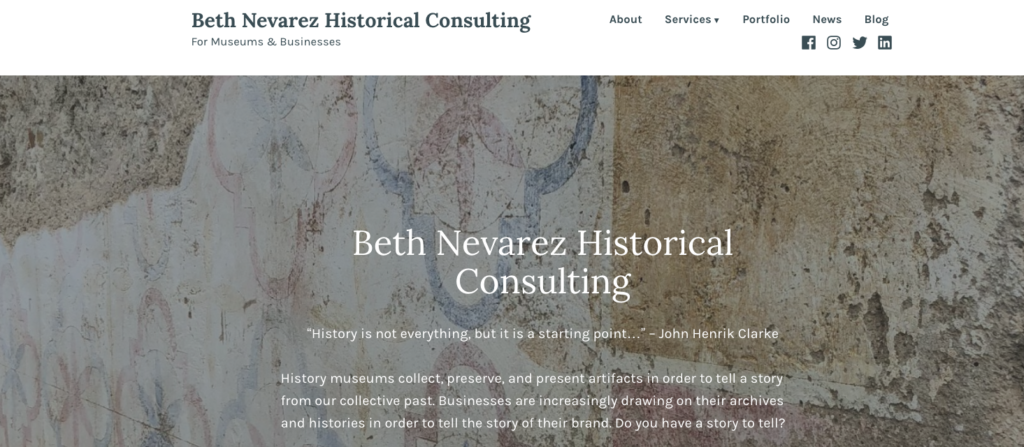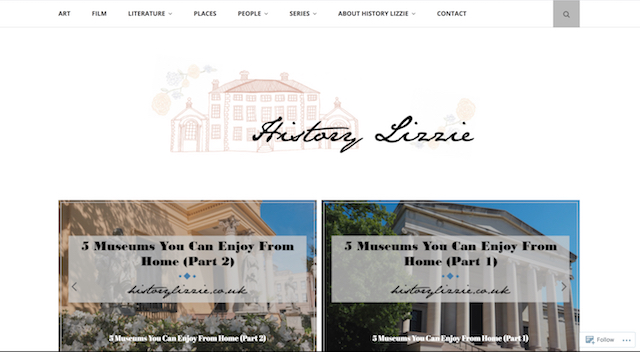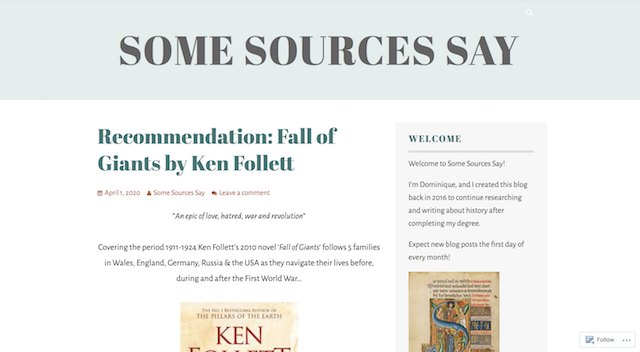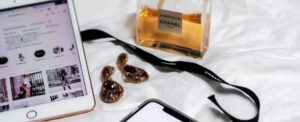If you’re nervous but aspiring to join the community of history bloggers out there, these stories show you there is no one way or ‘right’ way to get into history blogging.
The truth is for many bloggers, history blogging is complex and emotional. And, the spark for starting to blog, as yours will be, is utterly unique. But, there is a common thread. Researching, writing and engaging in the community as a history blogger is a positive part of their lives. It could be for you too! : )
Thank you to Lizzie, Dominique, Beth and the blogger who wished to stay anonymous for sharing your deeply personal reasons for taking the leap from history lover to history blogger.
I plan to share more stories, like this, about how history bloggers started out. If you’d like to be part of the next post – get in touch. You can also read ‘Why I Started my History Blog’ by Jo Romero from Love British History
ONE – Anonymous
“My blog was dormant for about 5 years because life took over and teaching took over my life.
I’d begun to really struggle with the stress and pressure of the job and this culminated in mental health spiral leading to a suicide attempt and a very dark place so I left my job very quickly with nothing to go to.Then lockdown happened and I was jobless and spending most of my time on my own while my partner continued to go to work. If I’m not distracted, my mind can quickly go to some very dark places.
So I revived my blog literally to keep my mind busy and to rediscover my love of history just mainly to have something positive to focus on. It’s not an exaggeration to say that the blog and community I have found on IG, in particular, has probably saved my life purely because it keeps me busy and allowed me to find likeminded people.
I’m happy to say that I’m in a much happier and more stable place and I think the blog has played a factor in that.”
TWO – Beth Nevarez
“I have a degree in public history and I am a museum professional. But for a few years, I was working in a corporate archive and I used history blogging as a way to write about topics I was interested in. I did it just for fun really and to stay in practice in terms of writing.
I pivoted my archiving experience and my past experience in museums into a museum consulting business. I launched my historical consulting business with two museum contracts and I left the corporate job.
I now do museum collection care & management, historical research, exhibit planning and digital content creation. My time dabbling in blogging and social media helped with the digital content creation I do now and I still blog about history to share my consulting work or as a marketing tool.”

Join Beth as she explores her interests in women’s history, the history of Latin America, immigration history, and material culture. Beth loves connecting the past to the present and helping others to make personal connections to the past.
THREE – History Lizzie
“I was super creative as a child and teenager, constantly drawing, imagining, reading, writing (chapters and chapters of stories) and making things.
When I went to university, although I found the subject I knew I was meant to pursue a career in/lifelong love of, the anxiety of doing well and throwing myself into my studies (which turned into almost eight years of pursuing both undergraduate and postgraduate degrees), which I would never change for a thing, kind of zapped all my creative energy.
I started my blog, tentatively, one night when I was home alone in the summer, and only wrote sporadically, but enjoyed pouring my thoughts in and feeling like, even if it was only a tiny corner of the internet, it was my place to enjoy being creative whenever I had chance to dream up a subject and post about it.
Blogging (slowly and erratically) taught me how to be creative again at a time when I thought I’d lost all my creative energy, and now, although I still am a bit slow and erratic with my schedule, I get so excited to have this space to share and connect with others and make things, tell stories that matter to me and design things.
When I was struggling with massive anxiety about my PhD thesis, creating a little blog post or writing an Instagram caption about a museum or country house gave me such joy. It’s my space, with my expectations governing it, and it makes me feel calm, and, best of all, creative again.”

Join Lizzie Rogers as she blogs from Savannah, Georgia about women and their interaction with the world around them, plus indulges her passion for all things Jane Austen.
FOUR – Some Sources Say
“I created Some Sources Say in 2016 (when it was originally called The History Grad) to continue researching and writing about historical people, places and events after finishing my history and sociology degree at the University of Leeds.
I had done bits of blogging at university and really enjoyed it, so this experience gave me the confidence to get started with Some Sources Say.”

Join Dominique as she dives into archival records and secondary literature to discover fascinating historical people, places and topics.
And…. here’s my story.
When I left my job at the Foreign & Commonwealth Office, London my plan was to create political study guides and blog about British politics but two things happened.
- Being immersed in UK politics became an incredibly toxic part of my life, as did, if you’ve ever put #politics into Twitter, political debate
- My son nearly died when he was born. I reassessed a few things that night and one of them was if anything was going to take me away from him it’d better be worth it.
So, I turned away from politics and realigned myself with the passion for history I’ve always had. Save reading historical fiction and travel it had been dormant for over a decade. But, as I began writing about history again it felt natural, easy and something I wanted to get into as did creating Smart History Blogging.
Want to join these amazing history bloggers and share how you got started?
If you’re up for telling your story get in touch or DM me @elizabeth_smarthistoryblogging on Instagram. I’d love to share how you got started with history blogging.




